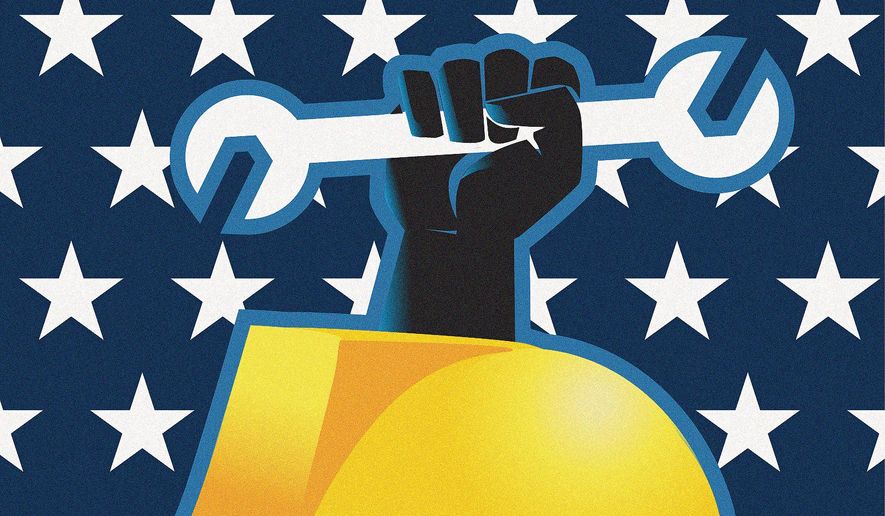OPINION:
The arrival of Labor Day in America signals the unofficial end of summer and the last chance to grill up a feast for family and friends before the onset of autumn’s chill. Aside from perfunctory parades in Big Labor enclaves, though, revelers have grown accustomed to neglecting the holiday’s original intent, which is to pay tribute to the contributions of American workers. Now in the Biden era, labor itself is losing esteem. It’s time to wrap up the season of sloth and relaunch the primacy of work.
There is no shortage of jobs to which Americans can apply their painstakingly acquired skills. The U.S. Bureau of Labor Statistics reported 11.2 million openings in July. Employers desperate for new workers to fill vacancies are dangling sizzling wages 6.7% above those of a year ago, according to payroll firm ADP.
Despite the glut of opportunities, many Americans are apparently still mired in a pandemic-era mindset in which they prefer cocooning to working. The labor force participation rate, which averaged above 66% for 20 years before 2010, ebbed, then fell precipitously to 60% when the COVID-19 lockdowns ensued in March 2020, only creeping back to 62.4% this spring. Even as fears of disease have largely dissipated, the proportion U.S. citizens returning to work has retreated again, falling to 62.1% in July before recovering slightly to 62.4% in August. Why?
Lavish government handouts — trillions in paycheck protection and unemployment funds that included hundreds of billions in bogus claims pocketed by fraudsters — have served to shatter the link between work and reward. Now, President Joe Biden threatens to rupture the connection further with his plan to relieve college students of their education loans, handouts for some worth $20,000. The price tag on this fresh form of Bidenomics could exceed $500 billion – to be charged to ordinary taxpayers, most of whom never attended college. How does one not conclude that the great American work ethic is for suckers?
Once upon a time, labor was recognized as a noble exercise in the advance of civilization — long before workers took to massing into a political force. The rise of unions, though, has repurposed the story of human progress to celebrate the advent of “organized labor.” Since Labor Day won official recognition as a federal holiday in 1894, union muscle has waxed and waned. Currently, Big Labor is riding high on the momentum of the trendy “progressive” politics pushed by Mr. Biden. As Labor Day arrives, a Gallup poll finds favorability toward unions has reached 68%, just shy of the record 71% garnered in 1965.
Organized or inborn, human labor is an expression of the universal impulse to create. Eyeing a puzzlement, pondering it, then putting a shoulder to the wheel and enacting a successful solution is the source of an unmatched sense of pride. Copping a government check for merely breathing is a sure pathway to indolence and, ultimately, a tragic feeling of worthlessness.
Americans worthy of the title can revive the Labor Day of their nation-building forebears by concluding their holiday with a resolution to relaunch their highest hopes at the crack of dawn.




Please read our comment policy before commenting.